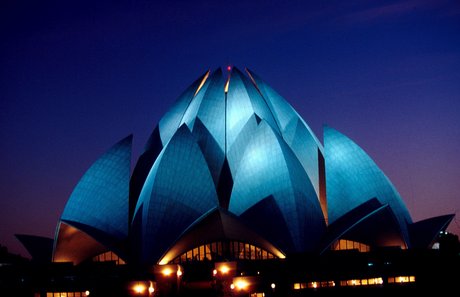Source from here.

And the environmentalists said let there be darkness. And – for an hour, at least – there was darkness: in downtown office towers and suburban homes, in stores big-box and mom-and-pop, at gatherings long-planned and impromptu.
Not a solution, no, but a statement. At 9:30 p.m., the conclusion of the second global Earth Hour, the meter at Toronto Hydro's control centre that measures city-wide electricity demand hit 2,545 megawatts – 15 per cent below typical demand at that time and 7 per cent below the lowest demand during Earth Hour in 2008.
Toronto's reduction of 455 megawatts was larger than the cumulative savings of the entire GTA during last year's event.
"Torontonians want to do what's right for the environment because they get it," Mayor David Miller told a cheering crowd at Nathan Phillips Square. "It's a privilege to be mayor of a city that gets it."
The increasing local popularity of Earth Hour, for which people worldwide were asked to turn off their lights between 8:30 p.m. and 9:30 p.m., reflected its rapid growth internationally. Launched in Sydney by the World Wildlife Fund in 2007 to raise awareness of the perils of climate change, it spread to more than 35 countries, including Canada, in 2008.
More than 80 countries and 3,000 cities participated today. Organizers claimed about 1 billion people spent the hour in the dark, an exponential increase from perhaps 50 million last year.
In Paris, the Eiffel Tower went noir. In Toronto, the CN Tower became as inconspicuous as a 553-metre building can ever be. In Athens, officials switched off the floodlights illuminating the Acropolis, an icon of western civilization. In Toronto, Honest Ed's iconically garish 23,000-bulb marquee temporarily ceased beckoning.
GTA hotels and stores welcomed guests by candlelight. Community groups hosted flashlight-lit walks. Amateur astronomers, savouring a rare approximation of light conditions in less dense locales, set up their telescopes in parks.
And tens of thousands congregated in private homes and public squares to both demonstrate their concern for the planet's fate and to share in the low-wattage spectacle.
At Nathan Phillips Square, thousands gathered for the city's official Earth Hour event, which featured a free concert. Many waved colourful glow sticks, loudly counting down the seconds until the beginning of the hour and cheering as City Hall went dark at the stroke of 8:30.
Many lights, of course, remained on. During the hour, Katie Szeto, 17, sat on a bench facing Queen St. W., looking dejectedly at the sky. "I'm a little disappointed, because I can't see the stars," said Szeto.
"And I'm sad that some buildings aren't dimmed," she said, pointing to several well-lit apartment buildings overlooking City Hall.
Organizers attempted to depict Earth Hour as a "global election," pitting people who "vote Earth" by turning their lights off versus people who "vote global warming" by leaving their lights on.
Some 250 Canadian cities participated. Yet some Canadians remained skeptical, arguing the event was little more than an exercise in feel-good tokenism.
At Dundas Square, hundreds lined up for free water filters Brita distributed to mark Earth Hour.
Olesya Kolisnyk, an environmentally conscious 29-year-old near the front of the line, said she had "very low expectations" about the event's long-term impact, though she supported the concept. "Something is better than nothing. Maybe we can do it quarterly."
WWF organizers said they acknowledged the limitations of a one-hour annual event. But they argued the event's worldwide popularity could influence governments to sign a new international accord on carbon emissions at the UN Climate Conference in Copenhagen in December. The Kyoto Protocol expires in 2012.
"This is a critical year for climate," WWF Canada president and chief executive officer Gerald Butts has said. "We need to come out of Copenhagen with a workable deal, based on science, that is going to lower carbon emissions globally. We think this is a turning point."
China, whose support environmental groups consider essential to the success of any worldwide climate plan, participated in Earth Hour for the first time, turning off the lights at prominent Olympic venues and office towers.
During last year's Earth Hour, Milton, Newmarket, Aurora and Halton Hills cut their electricity use by a greater percentage than Toronto. Milton led by the GTA with a 15 per cent reduction.
Before last night, Hydro officials cautiously predicted a Toronto decrease of 10 per cent. At the control centre, supervisors smiled as the reduction far surpassed expectations. "Torontonians have come through big time," said grid operations supervisor John Fletcher.
And then the city powered up. By 9:40 p.m., consumption had increased by 30 megawatts.
-With files from Paola Loriggio and Jason Miller










 del.icio.us
del.icio.us Digg It!
Digg It! yahoo
yahoo Facebook
Facebook rss
rss



Comment On This Story